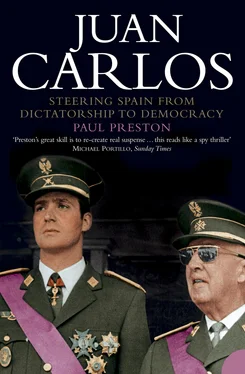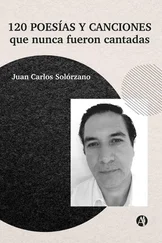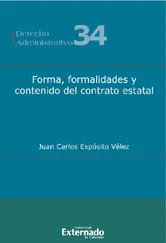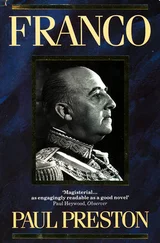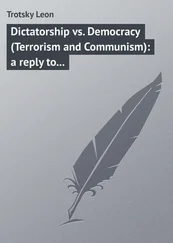1 ...6 7 8 10 11 12 ...40 On 2 February 1946, Don Juan and his wife moved to the fashionable but sleepy seaside resort of Estoril, west of Lisbon. An area of splendid mansions built for the millionaire bankers and shipbuilders of the nearby capital, its silent isolation was disturbed only by the click of chips falling in the casinos. The eight-year-old Juan Carlos, to his considerable distress, was left behind in Switzerland, where he was by now being educated by the Marian fathers in Fribourg. For the first two months in Portugal, his family lived in Villa Papoila, loaned by the Marqués de Pelayo, later moving in March 1946 to the larger Villa Bel Ver. They stayed there until the autumn of 1947 when they moved to Casa da Rocha, until finally in February 1949, they established their residence at Villa Giralda. In 1946, for many of Don Juan’s supporters, his proximity to Spain seemed to shorten the distance that separated him from the throne. His mere presence in the Iberian Peninsula set off a wave of monarchist enthusiasm. The Spanish Foreign Ministry was inundated with requests for visas as senior monarchists set off to pay their respects. 74
Franco’s Ambassador to Portugal, his brother Nicolás, quickly established a superficially cordial relationship with Don Juan. However, when Nicolás suggested he drive him to Madrid for a secret meeting with the Caudillo, Gil Robles, Don Juan’s senior adviser, was adamant: ‘Your Majesty cannot go and see Generalísimo Franco on Spanish soil since he would be going there as a subject.’ 75 Indeed, it had been the expectation of tension with Franco that had led Don Juan to decide that it was better for Juan Carlos to remain in Switzerland. The wisdom of his decision was underlined when the Caudillo lashed out in response to the publication on 13 February 1946 of a letter welcoming Don Juan to the Peninsula, signed by 458 prominent establishment figures. Franco reacted as if he was faced with a mutiny by subordinates rather than an attempt to accelerate a process to which he had publicly committed himself. He told a cabinet meeting on 15 February, ‘This is a declaration of war, they must be crushed like worms.’ In an astonishing phrase, he declared, ‘the regime must defend itself and bite back deeply.’ He relented only after Martín Artajo, General Dávila and others had pointed out the damaging international repercussions of such a move. He then went through the list of signatories, specifying the best ways of punishing each of them, by the withdrawal of passports, tax inspections or dismissal from their posts. 76
While these high political dirty tricks were going on, the eight-year-old Prince was sent to a grim boarding school at Ville Saint-Jean in Fribourg, run by the stern Marian fathers. Juan Carlos would later recall his distress at being separated from his family and from his tutor Eugenio Vegas Latapié, of whom he had become fond. ‘At first, I was really very miserable, because I felt that my family had abandoned me, that my mother and father had just forgotten all about me.’ Every day he waited for a telephone call from his mother that never came. It must have been the harder to bear because of the gnawing suspicion that his parents’ favourite was his younger brother Alfonso, who remained at home with them. Only later did he discover that his father had forbidden his mother to phone him, saying, ‘María, you’ve got to help him become tougher.’ Later on, Juan Carlos tried to explain away his father’s actions – ‘It was not cruelty on his part and certainly not a lack of feeling. But my father knew, as I would later know myself, that princes need to be brought up the hard way.’ Juan Carlos had to pay a terrible price in loneliness – ‘in Fribourg, far from my father and my mother, I learned that solitude is a heavy burden to bear.’ The most visible consequences of the apparent harshness of his parents’ treatment would be his perpetually melancholy expression and a silent reserve.
In later endeavouring to explain away his father’s motivation, Juan Carlos inadvertently shed light on his own life as an eight-year-old, far from his parents: ‘My father had a deep sense of what being royal involved. He saw in me not only his son but also the heir to a dynasty, and as such, I had to start preparing myself to face up to my responsibilities.’ 77 Despite such rationalizations, it is clear that it was difficult for Juan Carlos ever to reconcile himself to this early separation. (His own son, Felipe, would not be sent to boarding school at such a young age and did not leave home for the first time until he was 16, in order to spend his last year at school at the Lockfield College School in Toronto, Canada.) Indeed, in a 1978 interview for the German conservative paper Welt am Sonntag , Juan Carlos would describe his departure for Ville Saint-Jean in more heartfelt terms: ‘going to boarding school meant saying goodbye to my childhood, to a worry-free world full of family warmth. I had to face that initial difficult period of separation from my family all alone.’ 78
Even when phone calls from home were finally permitted by Don Juan, they remained, for a long time, few and far between. This silence from his parents must have been very painful, since Juan Carlos was given no explanation. It was hardly surprising that he felt that they had simply forgotten him. His unhappiness at Ville Saint-Jean was intensified by the fact that he quickly fell foul of the school’s rigid discipline. His teachers there would later remember him as a handsome but indisciplined eight-year-old of average intelligence, with a lively sense of humour. They considered him to have been spoilt by overindulgent nannies in the past: ‘they had let him get away with virtually everything so that he considered himself as lord and master wherever he happened to be.’ Father Julio de Hoyos, one of Juan Carlos’s teachers, recalled how the Prince refused to attend his first class at the school: he had physically to carry the boy to the classroom and then to slap him in order to make him sit quietly and pay attention. No one seems to have considered that the boy’s behaviour and poor academic performance were symptoms of his desperate unhappiness at being separated from his parents. 79
In November 1980, Juan Carlos recounted to the English biographer of his grandmother his vivid memories of how important Queen Victoria Eugenia was to him during this period. She frequently visited him at his school. Although deeply conscious of the responsibilities of royalty, she had a warm relationship with him. Remembering her own difficulties with the Spanish language when she first arrived in Madrid at the turn of the century, she was determined that Juan Carlos would not suffer embarrassment or criticism as a result of having a foreign accent. Having been brought up in Italy and Switzerland, speaking French as much as Spanish, he had a noticeable accent, particularly in his pronunciation of the crucial letter ‘r’. The majority of the pupils at Ville Saint-Jean were French and all classes were in French. Victoria Eugenia taught him to trill the ‘r’ in the Spanish style and to drop the French explosive ‘r’ which sounds so comical to Spaniards. 80 At the beginning of the 1946 Christmas holiday, Victoria Eugenia accompanied Juan Carlos on his trip back to Estoril. On the boy’s arrival, Eugenio Vegas Latapié, Don Juan’s political secretary, resumed his duties as tutor, in order to prepare him for his future royal tasks, and would also accompany him back to Switzerland after the holidays. Astonishingly, Vegas was allowed to smack the Prince when he was naughty – although without hurting him. Despite Vegas Latapié’s intellectually imposing and austere character, they had established a good relationship. He laid the basis for the boy’s later conservatism – along with emphasis on Spain’s one-time imperial glories, he taught him the anthem of the Spanish Foreign Legion, which Juan Carlos would find profoundly moving thereafter. 81 Before Don Juan had left Lausanne, Father Carles Cardó, the distinguished Catalan theologian, in exile in Switzerland, said to him, ‘Sir, be careful that Eugenio Vegas Latapié doesn’t turn the Prince into a new Philip II.’ By this stage, Juan Carlos was already exhibiting an emotional (though naïvely expressed) concern for Spain’s internal affairs. Vegas Latapié remembers that one day, the Prince told him that he had ‘promised God not to eat chocolates again until an important political event takes place in Spain’. Vegas Latapié replied that this seemed rather too big a promise for a child to make and that he might not be able to eat chocolates for a very long time if he kept it. When Juan Carlos asked him what he should do, Vegas Latapié replied that he ought to go to confession. He then absolved him of his promise and told him not to make similar ones in the future. 82
Читать дальше
